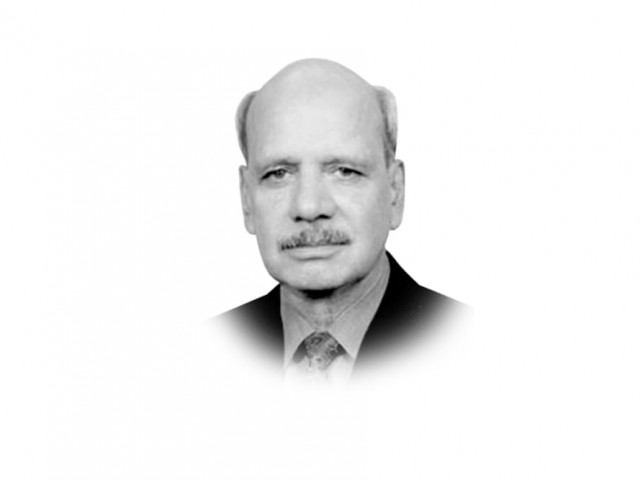The costs of our misrule
Regardless of who ruled – in uniform or in civvies – the real power was always exercised by the establishment.

Once, as is the wont of those in uniform, we were trying to impress our civilian colleagues with the virtues of our military tradition. “Pakistani soldiers are amongst the best” drew a rather unkind response from one of them: “Poor men have no choice; they need the job and therefore take all your nonsense and behave”. Motivation for war needs a bit more than having to earn a livelihood, but our friend spoke from a certain perspective. The common man in Pakistan has learnt to live with less and developed an immense capacity to suffer and sacrifice.
There is another reason our ruling classes do not feel compelled to mend their ways. Pakistanis are innovative. The apathy of the officialdom helped create a vibrant non-state structure. Free from the state’s stranglehold, it created low paid jobs and provided affordable goods and services. Since the actual size of the economy is much larger than the stated figures, it deprived the state of precious revenue and of the privilege to claim credit for higher growth. To compensate, it kept the teeming masses off the streets and saved the rulers the trouble of working for the greater good.
But nothing is forever; not even the shenanigans of those who rule the roost — despite the indifference of the state and the resilience of the downtrodden. The system must either collapse under the growing burden or correct its course. We do not know when a straw would break the camel’s back or what would turn things around. A few observations that one made in the wake of the current floods indicate that the collapse is not too far.
In Pashtun society, the pride of men and the sanctity of women have always been sacrosanct. Driven to desperation, if the males are now begging on the roadside and the women mobbing aid workers, the dykes that were holding back the gathering storms must have developed cracks. I do not know what one could do to stop them from going bust – even though plenty of laundry lists on dos and don’ts have done their rounds – but I have some idea what will happen in the aftermath. The best organised amongst us will not only survive but will probably claim the inheritance.
Lately, we have been greatly troubled by another version of the non-state actors – popularly called the Taliban – who are running circles around us. We are distressed but have a problem conceding that along with their more benign counterparts, in economic and social fields for example, they too are an upshot of the state’s deficit. It is a universal phenomenon, al Qaeda being another case in point. Some of us are agonising over the lead taken by the “banned” religious organisations in providing flood relief. Not many are likely to be impressed. In the days to come, if al Dawa were to claim the leadership of the marooned ship, in all fairness it would have earned it.
I believe there is a race on, between the Americans in the air and beards on ground, to win the ultimate battle, of hearts and minds. The Armageddon!
Lt-Gen(r) Asad Durrani
Published in The Express Tribune, August 18th, 2010.















COMMENTS
Comments are moderated and generally will be posted if they are on-topic and not abusive.
For more information, please see our Comments FAQ